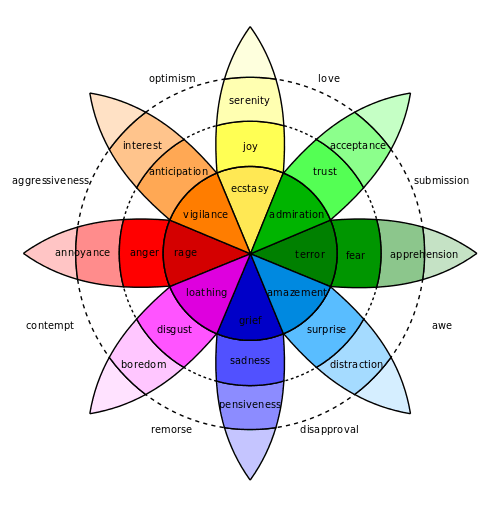Self-love
Self love has often been seen as a moral flaw, akin to vanity and selfishness.[1]
In 1956, however, psychologist and social philosopher Erich Fromm proposed that loving oneself is different from being arrogant, conceited, or egocentric, meaning instead caring about oneself and taking responsibility for oneself.
Traditional views
Cicero considered those who were sui amantes sine rivali (lovers of themselves without rivals) were doomed in the end to failure – a theme taken up by Francis Bacon in his condemnation of extreme self-lovers who would burn down their own home only to roast themselves an egg.[2]
Augustine however - with his theology of evil as a mere distortion of the good - considered that the sin of pride was only a perversion of a normal, more modest degree of self-love.[3]
Twentieth century re-interpretations
Eric Fromm proposed a re-evaluation of self-love in a positive sense, arguing that in order to be able to truly love another person, a person needs first to love oneself, in the way of respecting oneself, and knowing oneself (e.g. being realistic and honest about one's strengths and weaknesses). .[4][5]
Erik H. Erikson similarly wrote of a post-narcissistic appreciation of the value of the ego;[6] while Carl Rogers saw one result of successful therapy as the regaining of a quiet sense of pleasure in being one's own self.[7]
Literary references
Malvolio is described as “sick of self-love...a distempered appetite” in Twelfth Night (I.v.85-6), lacking self-perspective.[8]
See also
| Wikiquote has quotations related to: Self-love |
References
- ↑ B. Kirkpatrick ed., Roget's Thesaurus (1998) p. 592 and p. 639
- ↑ Francis Bacon, The Essays (1985) p. 131
- ↑ D. Sayers, Dante: Purgatory (1971) p. 66-7
- ↑ The Art of Loving (1956) by Erich Fromm. Harper & Row. ISBN 978-0-06-091594-0.
- ↑ "How to Stop Beating Yourself Up and Start Loving Yourself More | Build The Fire". Build The Fire. Retrieved 2016-03-10.
- ↑ Erik H. Erikson, Childhood and Society (1964) p. 260
- ↑ Carl Rogers, On Becoming a Person (1961) p. 87-8
- ↑ L. Anderson, A Kind of Wild Justice (1987) p. 116-8
- shaw, Bershan (2009), Self Love Expert, New York: 68 Jay St, Brooklyn, New York 12001
